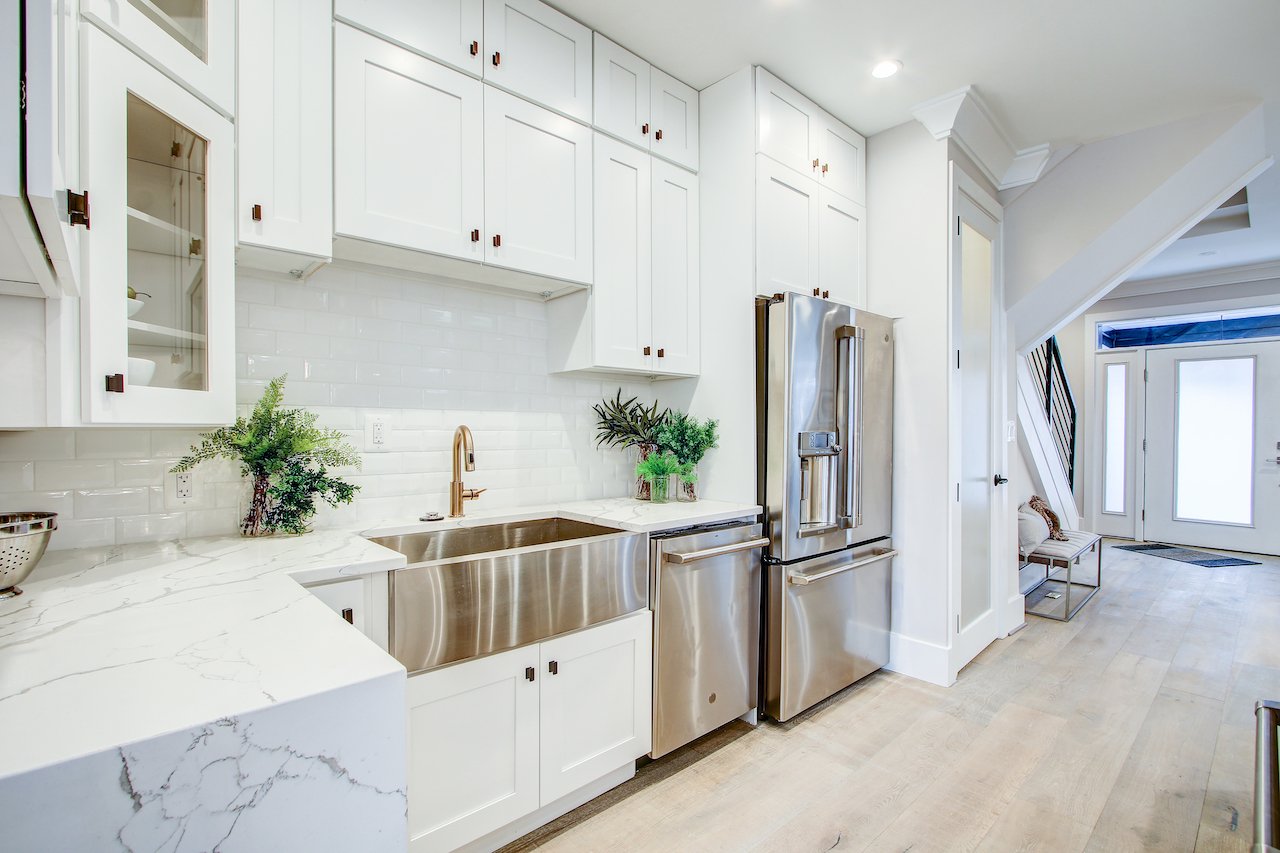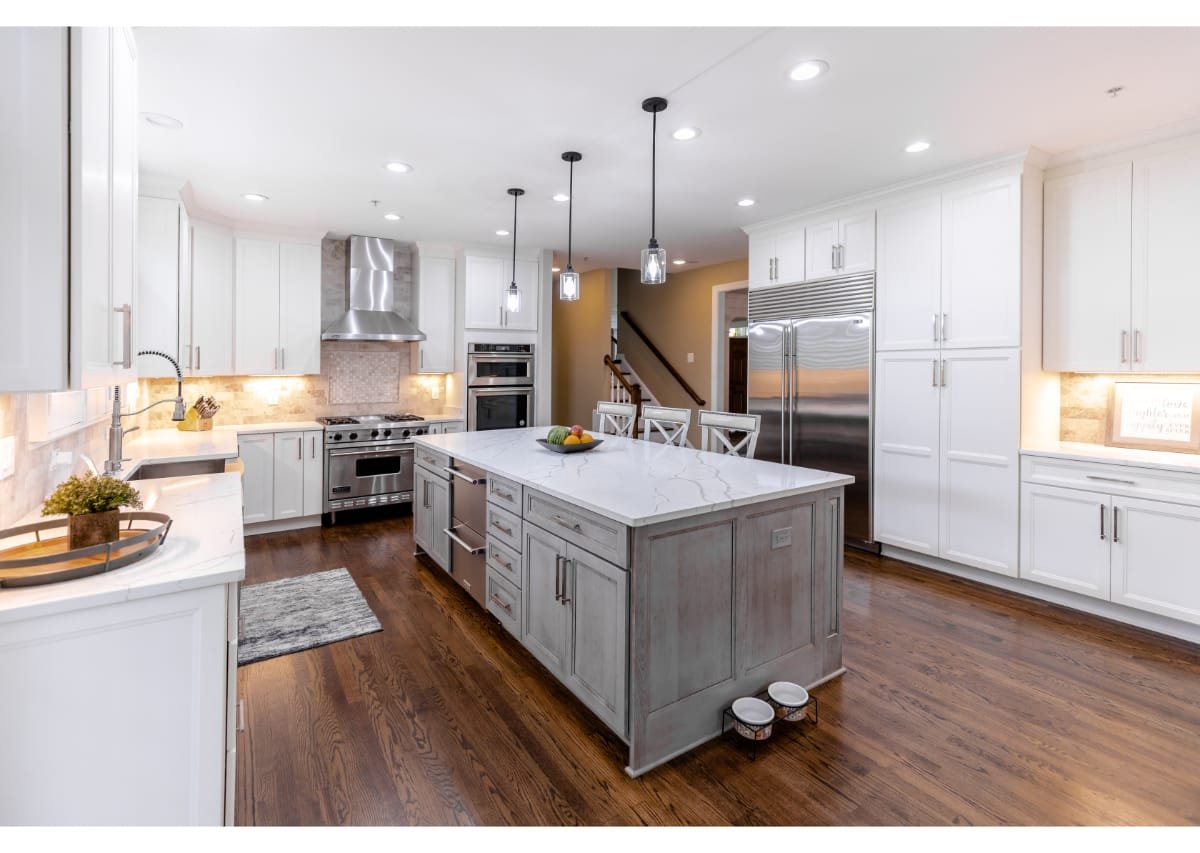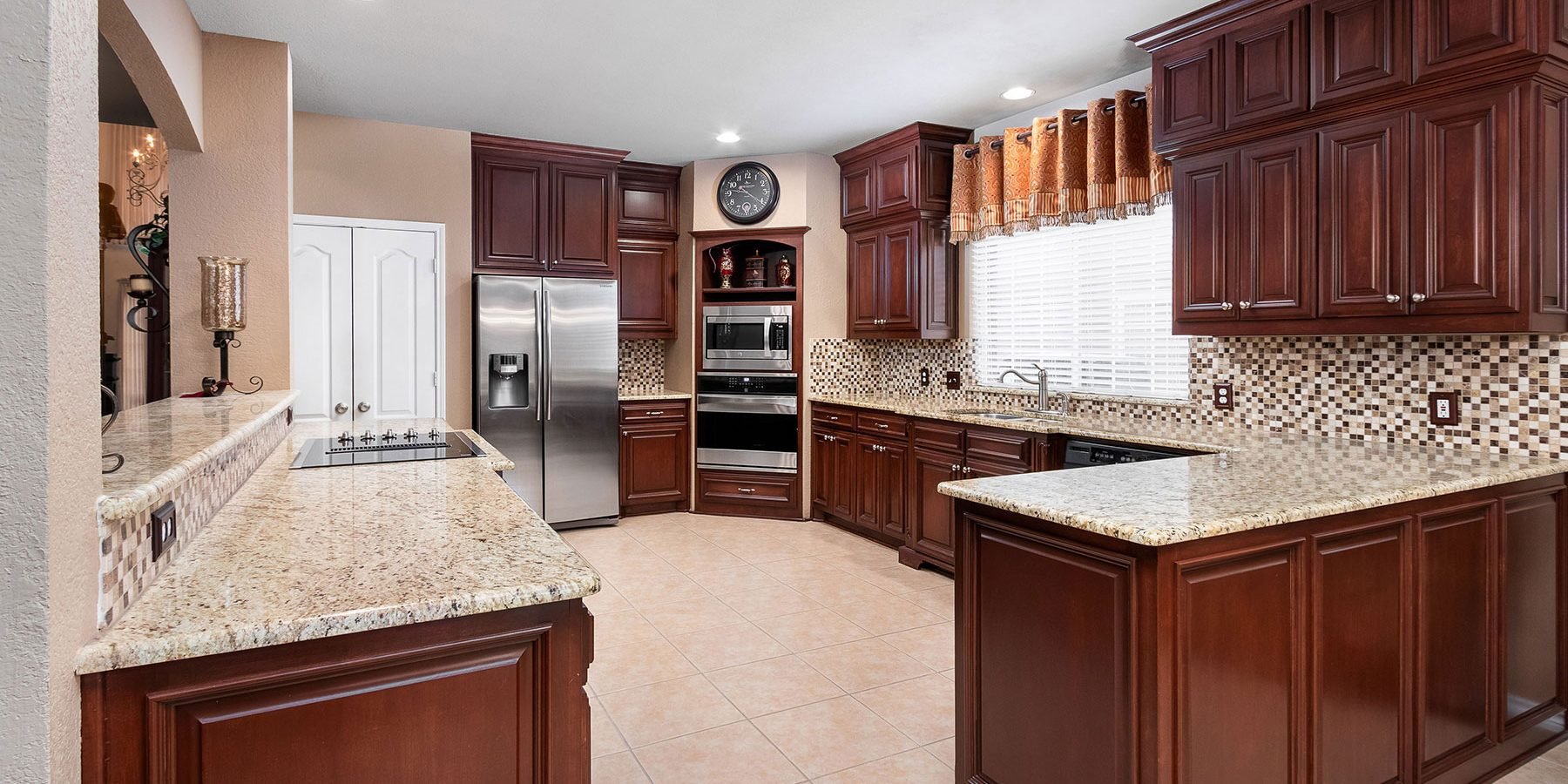How Long Does a Kitchen Remodel Take? Helpful Guide
Remodeling your kitchen is an exciting project that can transform your home. However, it’s a significant undertaking that requires careful planning, budgeting, and time management.
One common question homeowners ask is: “How long will it take?” In this article, we’ll explore the factors affecting your kitchen remodel timeline and break down the steps involved.
How long does a kitchen remodel take?
A kitchen remodel can take anywhere from 4 to 12 weeks. The timeline depends on the extent of the changes, availability of materials, and contractor schedules. Expect some disruptions during this time!
Key Takeaways
The timeline for a kitchen remodel varies based on the size and complexity of the project.
On average, kitchen remodels can take anywhere from 4 to 12 weeks.
Proper planning and organisation can help reduce delays and ensure the remodel stays on track.
Factors That Affect the Timeline of a Kitchen Remodel
Before you can estimate how long your kitchen remodel will take, it’s important to understand the factors that influence the timeline.
Here are some key elements that can affect how long your remodel will take:
1. Size and Scope of the Project
The size of your kitchen and the extent of the changes you want to make will play a big role in determining the timeline.
A simple refresh with cosmetic changes, such as new paint and countertops, will take significantly less time than a full renovation that involves structural changes, new appliances, and plumbing or electrical work.
2. Design Complexity
If you’re planning on making substantial changes to the layout or design of your kitchen, such as knocking down walls or installing custom cabinetry, the project will naturally take longer.
The more complex the design, the longer it will take to bring your vision to life.
3. Contractor Availability
The availability of the contractors you hire will also impact the timeline. If you have a busy contractor schedule, the project may take longer to complete.
It’s important to choose a reliable contractor who can commit to the necessary time frame.
4. Material Lead Times
The materials you choose for your kitchen remodel will also affect the timeline.
For example, custom-made cabinetry or high-end finishes may have longer lead times than more standard materials. If there’s a delay in receiving materials, it can push back the overall timeline.
General Timeline for a Kitchen Remodel
While every kitchen remodel is unique, here is a general timeline that outlines the typical phases of the project. Depending on the factors above, your timeline may be shorter or longer.
Phase 1: Planning and Design (1 to 4 Weeks)
The planning and design phase is crucial to the success of your kitchen remodel.
During this stage, you’ll work with a designer or contractor to finalise the layout, choose materials, and establish the overall design for the space.
This is the time to make all design decisions, from the colour scheme to the type of countertops and cabinetry you want.
Key Tasks: Hire a contractor, choose a design, select materials, and get necessary permits.
Timeline: 1 to 4 weeks, depending on how quickly you make decisions and how complex the design is.
Phase 2: Demolition and Prep Work (1 to 2 Weeks)
Once the design is finalised, it’s time to start tearing down old structures and preparing the space for the new design.
This includes removing cabinets, countertops, flooring, and any outdated appliances. If you’re making structural changes, such as moving walls or plumbing, this stage will take longer.
Key Tasks: Demolish existing structures, remove debris, prepare the space for new installations.
Timeline: 1 to 2 weeks, depending on the extent of the demolition.
Phase 3: Plumbing, Electrical, and Structural Work (1 to 3 Weeks)
If you’re changing the layout of the kitchen or installing new appliances that require additional plumbing or electrical work, this phase can take some time.
This is the stage where most of the behind-the-scenes work happens, including installing new pipes, wiring, and any structural changes to the space.
Key Tasks: Install or update plumbing, electrical, and structural systems.
Timeline: 1 to 3 weeks, depending on the complexity of the changes.
Phase 4: Installing Cabinets, Countertops, and Appliances (2 to 4 Weeks)
Once the plumbing and electrical work is done, it’s time to start installing the key elements of your kitchen: cabinets, countertops, and appliances.
Custom cabinetry can take a bit longer to install than pre-made options, but this is the phase where you’ll start to see your kitchen taking shape.
Key Tasks: Install cabinets, countertops, and appliances.
Timeline: 2 to 4 weeks, depending on the complexity and size of the kitchen.
Phase 5: Finishing Touches (1 to 2 Weeks)
The final phase involves adding the finishing touches to your kitchen remodel.
This includes installing backsplashes, painting, adding trim, and completing any final details that will make your kitchen feel complete.
The finishing touches are often what make the biggest difference in the overall aesthetic of the space.
Key Tasks: Install backsplash, paint, add trim, and final touches.
Timeline: 1 to 2 weeks.
How to Speed Up Your Kitchen Remodel
A kitchen remodel is an exciting opportunity to transform one of the most important spaces in your home, but it can also be a stressful and time-consuming process.
Whether you're updating the aesthetics, improving functionality, or increasing the value of your home, keeping your remodel on track and efficient is crucial.
While there are several factors you can't control, there are many ways to speed up the kitchen remodel process and ensure that it stays on schedule.
Here are some key strategies that can help speed up your kitchen remodel and ensure that it’s completed on time:
Plan Ahead
One of the best ways to speed up your kitchen remodel is to plan ahead.
The more detailed your planning, the fewer decisions you'll have to make during the actual remodel, which will save you significant time.
The design phase is usually the longest part of any renovation, so the sooner you can finalize your choices, the faster the project will move forward.
How to Plan Effectively:
Choose Materials Early: Selecting materials (e.g., countertops, cabinetry, tiles, and flooring) as early as possible ensures that your contractor has everything they need to begin work without delays.
Many materials, especially custom or specialty items, can have lead times, so it’s important to order them well in advance.
Finalize Your Layout: Take the time to carefully plan your kitchen layout. Any last-minute changes to the design can result in delays, so try to make your decisions before the project starts.
Set a Realistic Timeline: Work with your contractor to establish a realistic timeline for the remodel. Setting clear milestones can help keep everyone on track and ensure that work progresses smoothly.
Prepare Your Home
Before the contractors arrive, make sure your home is ready for the work to begin.
Clearing out your kitchen and removing any items that may get in the way will help save time and avoid unnecessary obstacles.
When contractors arrive and are able to start right away, the process will be faster, and they won’t have to wait for you to move things out of the way.
Things to Do to Prepare Your Home:
Remove Personal Items: Take out any items from the countertops, shelves, cabinets, and drawers.
This includes kitchenware, appliances, utensils, and anything else that could be in the way.
Set Up a Temporary Kitchen: Since your kitchen will likely be unusable during the remodel, set up a temporary cooking area in another part of your home (such as the dining room or basement) with a microwave, toaster oven, or electric stove.
Having a temporary kitchen setup allows you to continue preparing meals without interrupting the remodel schedule.
Protect Other Areas: Dust and debris can travel easily during a remodel.
Consider using plastic sheeting or protective covers in adjacent rooms to minimize the mess and keep other areas of your home clean.
Hire a Reliable Contractor
Choosing the right contractor can make a world of difference in the speed and quality of your kitchen remodel.
A skilled, experienced, and reliable contractor will keep the project on track, help resolve issues efficiently, and ensure that the work is done correctly.
A good contractor will be able to manage the work timeline and keep the project moving forward without unnecessary delays.
How to Choose a Reliable Contractor:
Check Reviews and References: Before hiring a contractor, check online reviews and ask for references.
Look for someone with a proven track record of completing projects on time and within budget.
Discuss Timeline Expectations: Be clear with your contractor about your timeline expectations.
Ask them how long they anticipate each phase of the remodel will take and what steps they will take to avoid delays.
Communicate Regularly: Maintain open and frequent communication with your contractor throughout the remodel.
This will help you stay informed about any potential delays and allow you to make quick decisions if problems arise.
Stay Flexible
While it’s important to plan ahead, it’s also crucial to remain flexible during your kitchen remodel.
Unexpected issues can arise, whether it’s a delay in material delivery, unforeseen structural problems, or changes in the design that require rethinking.
When delays happen, it’s easy to feel frustrated, but staying flexible and open to solutions can help you move forward more quickly.
How to Stay Flexible:
Be Prepared for Delays: Understand that there will be some challenges along the way.
Supply chain delays, weather, or hidden issues (like plumbing or electrical problems) can affect the timeline.
If your contractor encounters an issue, stay calm and work with them to find the best solution.
Work Around Minor Hiccups: If the project is slightly delayed by issues such as a missing part or minor design changes, try to work around these and avoid panicking.
A flexible approach allows you to keep things moving forward without compromising the overall timeline.
Make Quick Decisions: When changes or issues arise, be prepared to make decisions quickly.
Delays often occur when there’s hesitation or indecision, so being decisive can help keep the project on schedule.
Use Pre-fabricated or Standardized Materials
Custom-made or specialty items can be beautiful, but they often come with longer lead times. To avoid delays, consider using pre-fabricated or standardized materials where possible.
These materials are often readily available and can be installed faster than custom options.
Examples of Materials to Consider:
Pre-made Cabinets: While custom cabinets are stunning, they can delay your remodel significantly. Instead, opt for pre-made or semi-custom cabinets that are available in a variety of sizes and finishes.
Standard Countertops: Materials like granite or quartz are beautiful and durable, but opting for more standard options can help save time and money, as they are readily available and easier to install.
Ready-to-Install Flooring: Vinyl or laminate flooring often has a faster installation time compared to tile or hardwood, allowing your remodel to progress more quickly.
Frequently Asked Questions
1. How long does a kitchen remodel typically take?
A kitchen remodel typically takes between 4 to 12 weeks, depending on the size of the kitchen, the complexity of the remodel, and availability of materials.
2. Can I live in my home during a kitchen remodel?
Yes, it’s possible to live in your home during a kitchen remodel, but it may be inconvenient. Consider setting up a temporary cooking area in another part of your home.
3. What can I do to avoid delays during my kitchen remodel?
To avoid delays, plan ahead, hire a reliable contractor, and ensure your materials are ordered in advance. Staying flexible and having clear communication with your contractor can also help prevent issues.
Conclusion
A kitchen remodel is a rewarding project that can transform the heart of your home.
While it can take anywhere from a few weeks to a few months to complete, understanding the process and being prepared can help you manage the timeline effectively.
By planning ahead, hiring the right professionals, and staying flexible, you can ensure your kitchen remodel is a smooth and successful experience.



